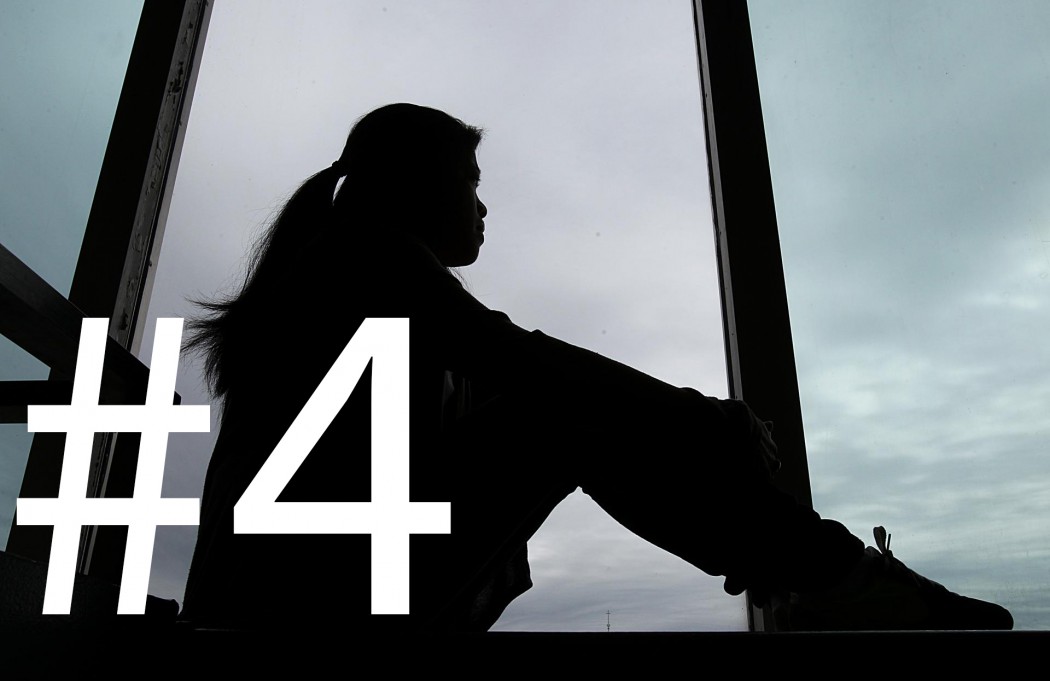Since we’re considering the migrant crisis in Europe we thought it would be worth while to turn the mirror around and also examine how migrants and immigrants do here in the United States, and specifically in the Northeast.
The Boston Globe reported last week on a domestic workers held captive in Northeast homes. Examples ranged from a Philippine nanny who’s ordeal with a Newton family included having her passport taken, kept in a room in their basement and told she was not allowed to leave the house on her one day off. Other documented situations included: Pay that was withheld for 13 years, contracts that appeared to be legal in English, but in the Portuguese version, which the employee could read, there were stark differences, like not mentioning the federal minimum wage rate, and so on. What happens to these women, they are mostly female, when they get sick or need medical attention is also disturbing.
Childcare is at the center of our generation’s goal to “have it all.” In order to balance work and family life one needs to have great childcare they can depend upon and trust. Our system is so broken that childcare workers are being locked in basements and are not being paid. This is an issue for all working parents. We need to encourage a healthy environment for the workers who care for our children. We need to treat those charged with the safety and care of our kids in the same manner we want them to treat our children, fairly and kindly.
“People think this happens elsewhere in the world, not in the rich, liberal Northeast,” said Quinn Kepes, program director at Verite, a nonprofit in Amherst that investigates worker abuses globally. “These women, and it’s mostly women, have nowhere to go. They’re socially and culturally isolated, and they have nowhere to turn.”
***
There are more than 1.6 million domestic workers in this country, according to the Economic Policy Institute in Washington. They clean houses, cook meals, and care for children and elders, performing what advocates call “the work that makes all other work possible.”
An estimated 67,000 of them work in Massachusetts — equivalent to the employment in Boston’s finance industry. Most are treated fairly and paid lawfully by their employers.
There are no state or federal statistics tracking violations of domestic workers’ rights. Legal advocates and law enforcement officials say only a fraction of the abuses are reported. Among those, some cases settle privately, while others are pursued in court. Many workers simply move on, fearful of reprisal if they complain.
There’s the nanny in Arlington who had to sleep on a bedbug-ridden couch in a basement. And the Bolivian housekeeper essentially enslaved in suburban Harvard, unpaid for 13 years. Another Filipino nanny, who was caring for triplets, slept on a mattress on the floor of a Newton apartment. When she announced she wanted to quit, she said, her employer angrily shut the door of a hot oven on her, briefly trapping her arm inside. She managed to escape in December, slipping away while taking out the trash.
While abuses can happen to any domestic worker, those who live with their employers are most vulnerable, at risk of becoming homeless if they complain about their treatment. More than one-third of live-in workers reported being threatened, insulted, or verbally abused in a national survey of more than 2,000 domestic workers.
The women whose experiences are detailed here have all had their cases vetted by their lawyers and have filed allegations in court or with government authorities. As part of applying for visas to stay in this country, they have agreed to assist in potential prosecutions of their former employers and have signed those papers under the pains and penalty of perjury.
Elvia Morales Cruz, a Guatemalan domestic worker, was employed by Max Borten, a Newton medical malpractice lawyer, to care for his four adopted children — and two more after he got married — from 2006 to 2010. She earned $400 a week, working from 7 a.m. to at least 7 p.m., six days a week, according to records in a lawsuit Cruz filed in Dorchester District Court.
The people who hire domestic workers are bankers, lawyers, diplomats, politicians, foreign businessmen, and regular, middle-class American families. Yet nearly one-quarter of nannies and others they employ live in poverty; most do not have health insurance or retirement savings.
These workers have gone largely unprotected by federal fair labor laws adopted in the 1930s, which excluded farmers and domestic workers, many of whom were black. Even when the US rules were updated in the 1970s, to require minimum wage and overtime for domestic workers, live-in workers were left out.
And many employers simply have not followed the rules. In April, a new Massachusetts law protecting domestic workers took effect that requires overtime pay and other protections. It calls on employers to provide a written contract to employees who work more than 16 hours a week in their home, outlining duties, work hours, and rights such as time off.






